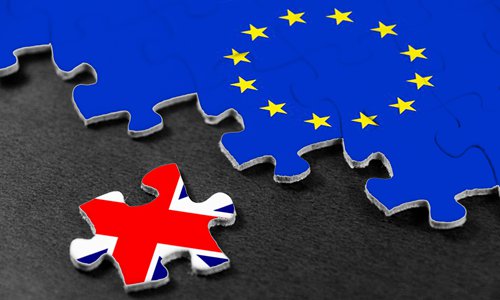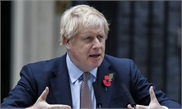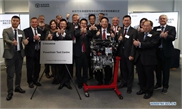
Photo:IC
As Brexit headlines continue to dominate British politics and the election campaign as the United Kingdom (UK) heads for a general election in December, business leaders say that the vote must break the Brexit gridlock in Parliament.
In their addresses at the Confederation of British Industry (CBI) annual conference on Monday, the leaders of the country's three main national parties sent vastly different Brexit messages to a room filled with business leaders.
In a call to press ahead with Brexit, UK Prime Minister and Conservative Party leader Boris Johnson said the country was being held back by politics and the Parliament, and it was time for the uncertainties to end, adding that he wanted 2020 to be a year of productivity and growth instead of two referendums, referring to one on Brexit and another on Scottish independence should the Labour Party win the election.
Opposition Labour Party leader Jeremy Corbyn accused the Conservative Party of wasting three years on Brexit, claiming it could get Brexit sorted within six months by getting another deal with the European Union (EU) and holding a referendum.
The Liberal Democrats' leader Jo Swinson said Brexit should be canceled and Britain should remain a member of the bloc, because Brexit in any form would be bad for jobs and for businesses.
The CBI said a new relationship with the EU should maintain frictionless trade, keep close regulatory alignment and support the UK's services sector.
"No matter who wins this election, we can only revive our economy if we get the right relationship with the EU, because half our trade is with the EU and a further 13 percent is covered by EU trade deals," said CBI President John Allan.
Carolyn Fairbairn, CBI director general, warned over extreme ideologies.
"On the right, we have the threat of, even preference for, no-deal as the end point of our Brexit negotiations. Meanwhile, ideology from the left is at least as damaging. The Labour Party is proposing the biggest program of renationalization this country has ever seen at a great cost with uncertain returns to the taxpayer and with no clear route to better customer service," Fairbairn said.


